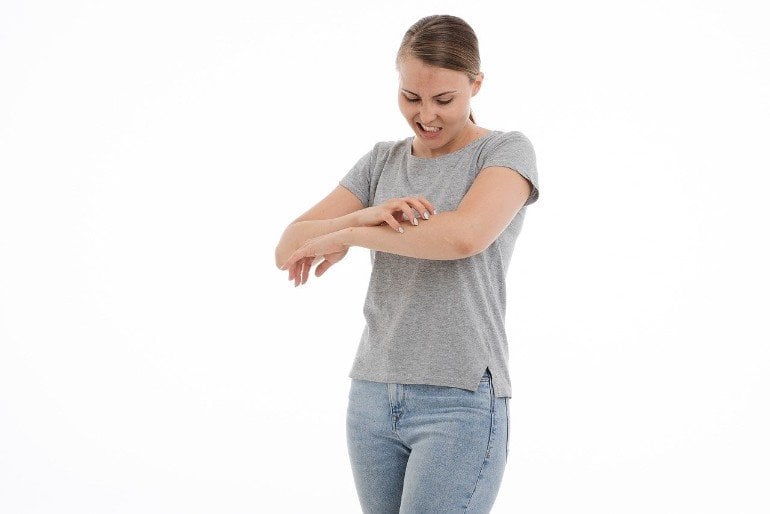Summary: A new case study reveals medical marijuana may provide rapid relief for sufferers of chronic itch. Researchers say THC attaches itself to brain receptors that influence the nervous system. This reduces inflammation and nervous system activity, leading to a reduction in itch sensation.
Source: Johns Hopkins Medicine
Chronic itch — known clinically as chronic pruritus — is characterized as an unrelenting and sometimes even debilitating sensation to itch, and often lowers the quality of life for those who suffer with it. Treating the condition has been difficult because there are few Food and Drug Administration-approved therapies.
Now, a recent case study by Johns Hopkins Medicine researchers provides evidence that a promising option for patients with chronic itch may already be available: medical marijuana (cannabis).
A report on the team’s findings was published April 9, 2021, in JAMA Dermatology.
“Chronic itch can be an especially difficult condition to treat, with off-label therapeutics often utilized,” says Shawn Kwatra, M.D., assistant professor of dermatology at the Johns Hopkins University School of Medicine.
“With the increased utilization of medical marijuana and our knowledge of the role of the endocannabinoid system [a complex cell-signaling system that regulates a variety of functions in the body] in chronic itch, we decided to try medical marijuana with a patient who failed several therapies and had few options left.”
Kwatra and his colleagues examined an African American woman in her 60s with a 10-year history of chronic itch. The patient initially arrived at the Johns Hopkins Itch Center with complaints of extreme pruritus on her arms, legs and stomach.
Upon a skin examination, numerous hyperpigmented, raised skin lesions were revealed. Several treatments were offered to the patient — including several systemic therapies, centrally acting nasal sprays, steroid creams and phototherapy — but they all failed.
Kwatra says that using medical marijuana — either by smoking or in liquid form —provided the woman with nearly instantaneous improvement.
“We had the patient rate her symptoms using a numerical rating scale, where 10 is the worst itch and zero is no itch at all,” Kwatra says. “She started at 10 but dropped to 4 within 10 minutes after initial administration of the medical marijuana. With continued use of the cannabis, the patient’s itch disappeared altogether.”

The researchers believe that one of the active ingredients in medical marijuana, tetrahydrocannabinol — commonly known by its abbreviation THC — attaches itself to brain receptors that influence the nervous system. When this occurs, inflammation and nervous system activity decrease, which also could lead to a reduction in skin sensations such as itchiness.
Kwatra says that although conclusive studies have yet to be done to validate medical marijuana as an effective measure for the relief of previously unmanageable itch, he believes it warrants further clinical trials.
“Controlled studies are needed to determine dosing, efficacy and safety for medical marijuana in the treatment of various human itch subtypes, and once those are performed, we will better understand which patients are most likely to benefit from this therapy,” he says.
About this chronic itch research news
Source: Johns Hopkins Medicine
Contact: Sheree-Monet Wisdom – Johns Hopkins Medicine
Image: The image is in the public domain
Original Research: Closed access.
“Treatment of Chronic Pruritus With Medical Marijuana” by Shawn Kwatra et al. JAMA Dermatology
Abstract
Treatment of Chronic Pruritus With Medical Marijuana
Chronic pruritus is a debilitating symptom that is associated with numerous dermatologic, neurologic, and systemic diseases. It is often resistant to treatment and can cause a severe reduction in quality of life.
Currently, to our knowledge, there is a lack of US Food and Drug Administration–approved therapies for pruritus, so treatment can be difficult and relies on off-label therapeutics.
In this article, we report a case of successful use of medical marijuana for treating chronic pruritus.







